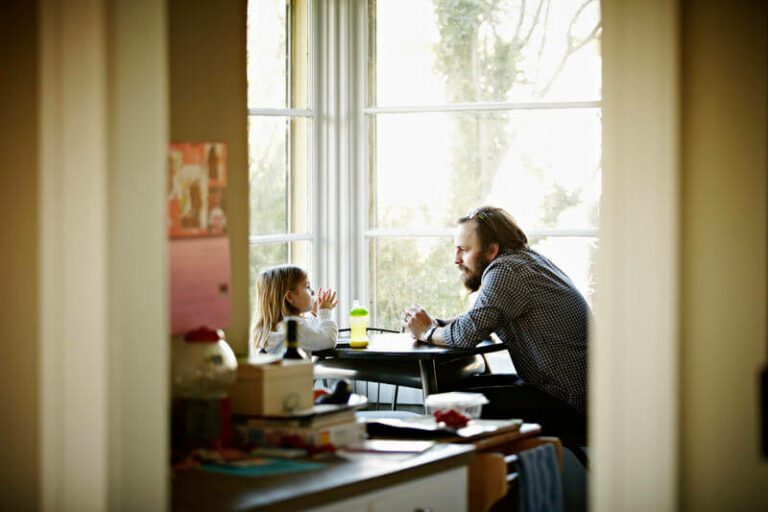Worst age for divorce for children
There is no ideal age at which divorce has no effect on children. However, age does determine the kind of impact divorce has on children.
For younger children, for example, a poorly managed divorce can cause separation anxiety. But for older children, it can cause resentment and a breakdown of the parent-child relationship. It is therefore important to talk to an expert like a counsellor or a specialist divorce lawyer who can inform you of the likely effects your divorce will have on your child.
How to deal with telling children about divorce
How to deal with telling children about divorce
-
How to tell children about divorce
Change is unsettling, and divorce can make children feel unloved, lonely and guilty. This confusing mix of emotions is difficult for children to deal with on their own.
As such, how you talk to your children about divorce is vital. Sit your child down for a talk with both parents present. Keep animosity to a minimum and explain what’s happening and why.
Remember that your children don’t need to know all the details about your divorce. Talk with your child about how the divorce affects them, not about what your partner may have done or the specific disagreements you may have had.
The most important message that you can give your child is that you still love them and will still be there for them no matter what happens. Some children may feel it is their fault you are splitting up or fear that they will stop having a relationship with one parent or with both – make sure you reassure these are not the case.
You can also provide reassurance with actions and not just words. Be civil, put a parenting plan in place and stick to it. If family decisions need to be made, try and make them together. This will further reassure your child.
-
Manage your emotions
Divorce and separation are painful. You will have to battle fear, anger, sadness and perhaps even despair. There is no way to avoid these negative feelings.
That being said, remember that divorce and separation are adult solutions to adult issues. Children of divorce do not and cannot understand these changes, while even older children will not fully comprehend them.
As such, there is a fine balance you have to strike. While you must not hide your feelings entirely, you should seek support from a friend, family member or counsellor, and not add to your children’s burden by relying on them emotionally. The impact of divorce on children is already difficult enough, something we understand as specialist family law solicitors.
-
Minimise the tension
Where possible, please try and keep a civilised relationship between you both. Conflict between parents is very upsetting for children as it places them in a difficult, insecure environment leading to stress and anxiety.
A key skill you will need to learn is how to bite your tongue. Let things go and keep high-conflict conversations to times when you and your partner are alone. Children of divorced parents report that seeing their parents in high-conflict situations was the most difficult part of their separation.
-
Maintain normal family life
Children—in fact, most of us—need routine. It makes us feel safe, secure and gives us a sense of belonging. Try and keep upset to a minimum where you can and carry on with the usual activities and daily routines like school, clubs, friends and seeing family from both sides. This will reassure your child that while some things might change, some things will stay the same.

Child care arrangements after separation
Bringing up children involves lots of decision making. Making these decisions together is beneficial; but that becomes more difficult during divorce and separation. Here are some practical tips to help you.
CAFCASS parenting plan
A parenting plan is a written plan that a child’s parents create after they separate. Writing one will help you both to detail all the practical arrangements that need to be put in place to care for your children. It will establish what is expected of each parent, is a valuable reference document in regards to ongoing care and potential disputes and helps maintain normal family life.

Wall planner/Google calendar
For younger children prepare a child-friendly chart for the wall which can help them understand what they’re doing and when, including when they will see their other parent. Dates can be difficult for a child to understand, so a chart helps them to feel a sense of control and add security.
For the more tech-savvy teenagers, Google Calendar is a great starting point as easy for everyone to access and you can share appointments quickly and easily. The whole family can also see at a glance what is happening that day. This is ideal for high-conflict divorces because it minimises the need for communication.
Free apps for divorced parents
There are hundreds of parenting apps, many designed specifically for parents going through divorce and separation. Most of them are US based, although there are some that work globally. Some of the apps are free; others require a subscription.
- 2houses. This is mainly based around a Google calendar for the childcare arrangements but has sections for finance and expenses as well as the ability to share medical histories and photo albums.
- Smart Coparent. Like 2houses with a calendar sharing function, finance/payments, budget, chat/messaging.
- AppClose. Free to use, calendar, messaging, able to send requests to partner e.g. I want the kids this day, or we have an appointment someone needs to go to.
- Fayr. Again very similar to the above, same calendar, messaging and finance/payments functionality.
What our clients say
Newsletter Sign Up
Sign up for advice on divorce and relationships from our lawyers, divorce coaches and relationship experts.
Privacy Policy
